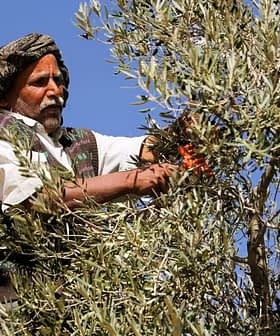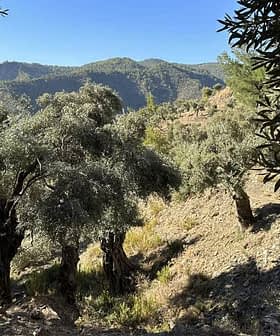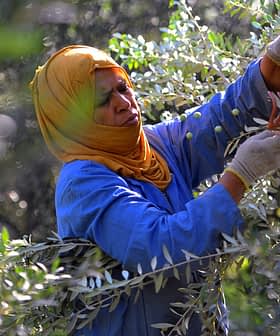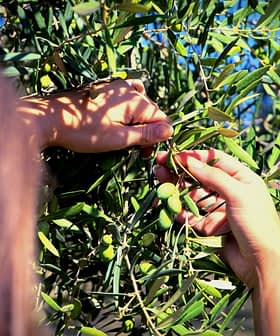 7.5K reads
7.5K readsBusiness
Major Olive Oil Producer Loses $3M in Spate of Thefts
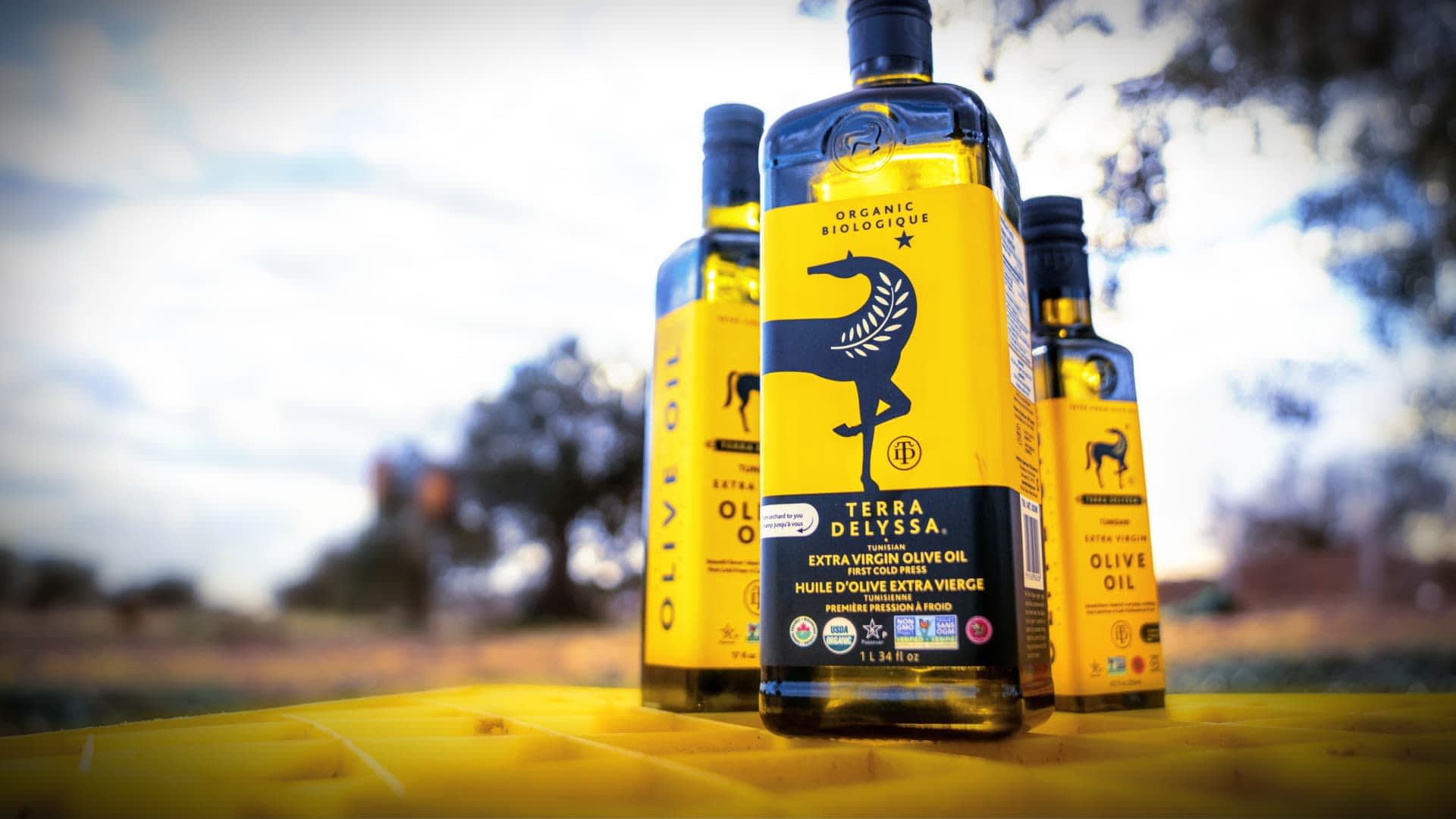
Tunisia’s largest olive oil producer, CHO Group, seeks North American olive oil community’s help to investigate a large-scale theft of its Terra Delyssa extra virgin olive oil, with incidents in Montreal and Houston leading to a $3 million loss. The company’s blockchain traceability technology played a crucial role in the investigation, while they urge retailers to avoid purchasing and reselling stolen goods to prevent complicity in the crime.
Tunisia’s largest olive oil producer, CHO Group, is appealing to the North American olive oil community for assistance in investigating a large-scale theft of its award-winning Terra Delyssa extra virgin olive oil.
On September 21st, a truck loaded with pallets of Terra Delyssa bottles was stolen in Montreal, Canada, prompting an ongoing investigation by local authorities.
A few days later, Houston police began an inquiry after receiving reports that a discount retailer was selling CHO Group’s olive oil at unusually low prices.
Using lot codes from the seized bottles, CHO Group tracked them back to a Houston warehouse operated by a third party. The estimated loss from these incidents is around $3 (€2.8) million.
This is the third time thieves have targeted CHO Group’s extra virgin olive oil, though the company believes the two most recent thefts are not connected.
“We believe this happened because Terra Delyssa can easily be placed on the market, as it is the number one brand in Canada and one of the best sellers in U.S. stores as well,” Wajih Rekik, CHO America’s chief executive, told Olive Oil Times.
See Also:Technology Drives the Ambitions of Tunisia’s Largest Olive Oil Producer“The notoriety of Terra Delyssa and the trust consumers have in the product make it very easy to sell, especially for thieves offering it at a 50 percent discount,” he added.
CHO Group’s blockchain traceability technology, originally designed to help consumers track the origin of their olive oil, played a crucial role in the investigation.
“In this case, it helped us trace all lot numbers to the storage location and made it possible to identify the stolen product instantly,” Rekik said.
Since the theft was made public, many companies in the olive oil industry have offered their support.
“We received phone calls from retailers as well as from our competitors, offering useful leads which were passed on to the police,” Rekik said. “Some thieves attempted to contact legitimate retailers right after the theft, and some of those retailers are now helping to track down the culprits.”
CHO Group has assured consumers that all Terra Delyssa bottles sold by major retailers are safe and unrelated to the theft.
“We sell directly to major retailers such as Whole Foods, Kroger, Target, Walmart, and Costco,” Rekik said. “Those bottles are completely legal and legitimate.”
However, some smaller retailers purchased the stolen olive oil, mainly international food stores, specialty shops, and discount outlets.
“Stores that offered these bottles were smaller international food stores or discount channels we’ve never done business with,” Rekik said.
In some cases, these stores contacted CHO Group after realizing they had bought stolen goods. “They cooperated with the investigation and offered to return the bottles immediately,” Rekik added.
Only about ten percent of the stolen bottles have been recovered, and Rekik emphasized the need for widespread cooperation.
“We ask all actors in the industry to help with any information they might have,” he said. “This is why it is essential that news of the theft spreads, as the whole sector has a direct interest in promoting and defending legal sales.”
He warned retailers that purchasing and reselling stolen goods could make them complicit in the crime.
“Buying those products from thieves and reselling them can easily transform any retailer into an accomplice of a criminal theft,” Rekik said. “Some retailers did not contact us when approached with the stolen bottles, only doing so after they saw the news.”
Rekik expressed frustration with how easily drastically discounted goods can sway people.
“People buy a $90 (€83) product for $10 (€9.20) or $15 (€13.80), and they don’t ask questions,” he said. “They should be calling the company listed on the label. Every food product in the U.S. has a label with the producer’s information. It’s easy to get in touch.”
He added that some retailers who purchased the stolen olive oil claimed they thought the discount was due to a quality issue.
“If something seems too good to be true, and you still go through with the purchase, you’re at risk of being an accomplice,” Rekik said.
See Also:Italian Police Official Explains How Olive Oil Fraud WorksThough many retailers eventually cooperated with the investigation, Rekik stressed how simple it would have been to prevent the issue: “Stopping this is easy: a two-minute phone call to the producer can clear everything up.”
To mitigate the chances of future incidents, CHO Group is implementing GPS tracking systems for their pallets and increasing audits with third-party logistics companies from once a year to four times a year. “We will maintain the use of third-party audits of third-party logistics as well,” Rekik said.
Rekik expressed his gratitude to those who assisted in the investigation. “I’d like to thank all the retailers, smaller retailers, and competitors who helped by sharing information,” he said. “We were so touched by direct competitors who reached out, investing their time and effort to support us.”
“It’s that strong sense of community that will help us all as an industry,” Rekik added.
He also shared a separate anecdote that could serve as a cautionary tale for the industry.
“When the products arrived at a retailer’s distribution center, we received a call informing us that a forklift had accidentally run into a pallet and broken five bottles,” Rekik said.
The consequences of an accident like this go beyond just a few broken bottles. “Five bottles of olive oil can soak an entire pallet, making it nearly impossible to handle due to the slippery mess,” Rekik said. “You’ve got all the ingredients for a catastrophe.”
Under normal circumstances, logistics teams would contact CHO Group for guidance on how to handle the situation.
“The cost to salvage the remaining bottles and clean up the spill would range between $3,000 (€2,755) and $4,000 (€3,675), while the total value of the damaged products might only be around $1,000 (€920),” he said.
Rekik explained that recovering the products does not make sense economically. “In cases like this, we usually tell them to dispose of the olive oil,” he said.
However, there’s a gap in the system: the people responsible for handling the damaged goods do not always oversee their destruction.
“The transporter or the person managing those bottles won’t necessarily be the one disposing of them,” Rekik said. “Sometimes, drivers, loading personnel, or even other staff end up in charge and no one is inspecting whether the bottles are destroyed.”
This creates an opportunity for wrongdoing. “Those bottles could be taken by someone and resold,” he added.
Though he understands the temptation, Rekik expressed mixed feelings about the situation. “Of course, we feel bad about destroying our olive oil because of a spill,” he said. “If it were me, I’d just clean the bottle and use it at home.”
“But for some people, illegally selling those bottles at a steep discount is a quick way to make easy cash,” he added. “That might make certain individuals look forward to the next time such an accident happens.”
The Involved Lots
CHO America listed the involved lots and asked anyone with information about those products to call +1 2817121549.
- Lot N° : L1185/40695
- Lot N° : L1144/40752 Expiry Date : 29/01/2026
- Lot N° : L1152/40753 Expiry Date : 26/02/2026
- Lot N° : L1152/40754 Expiry Date : 26/02/2026
- Lot N° : L1152/40758 Expiry Date : 26/02/2026
- Lot N° : L1149/42545 Expiry Date : 16/02/2026
- Lot N° : L1163/42584 Expiry Date : 29/03/2026
- Lot N° : L1178/42591 Expiry Date : 29/03/2026
- Lot N° : L1185/40695 Expiry Date : 05/02/2026
- Lot N° :L1187/40787 Expiry Date : 06/05/2026
- Lot N° : L1131/42520 Expiry Date : 03/01/2026


